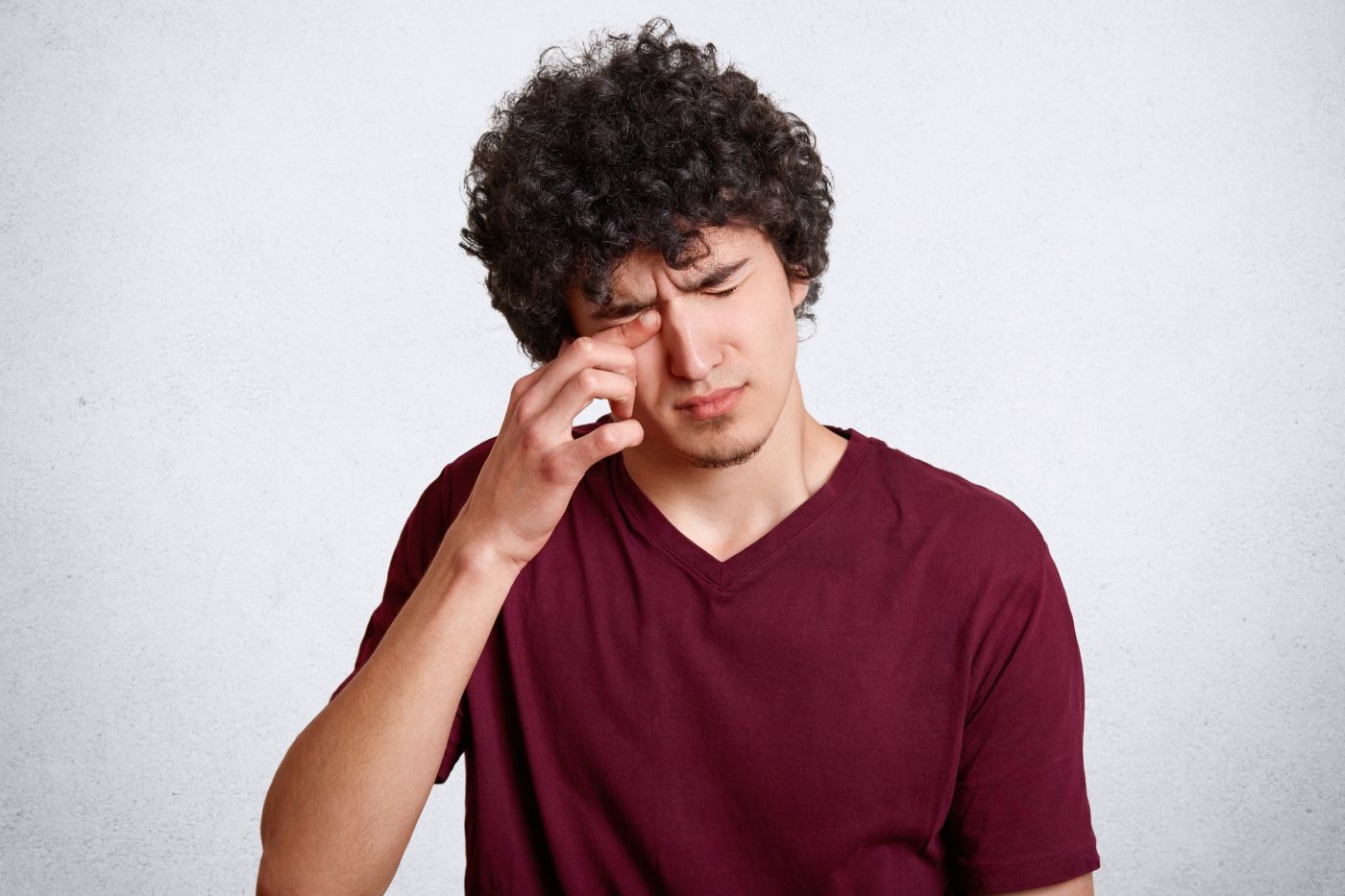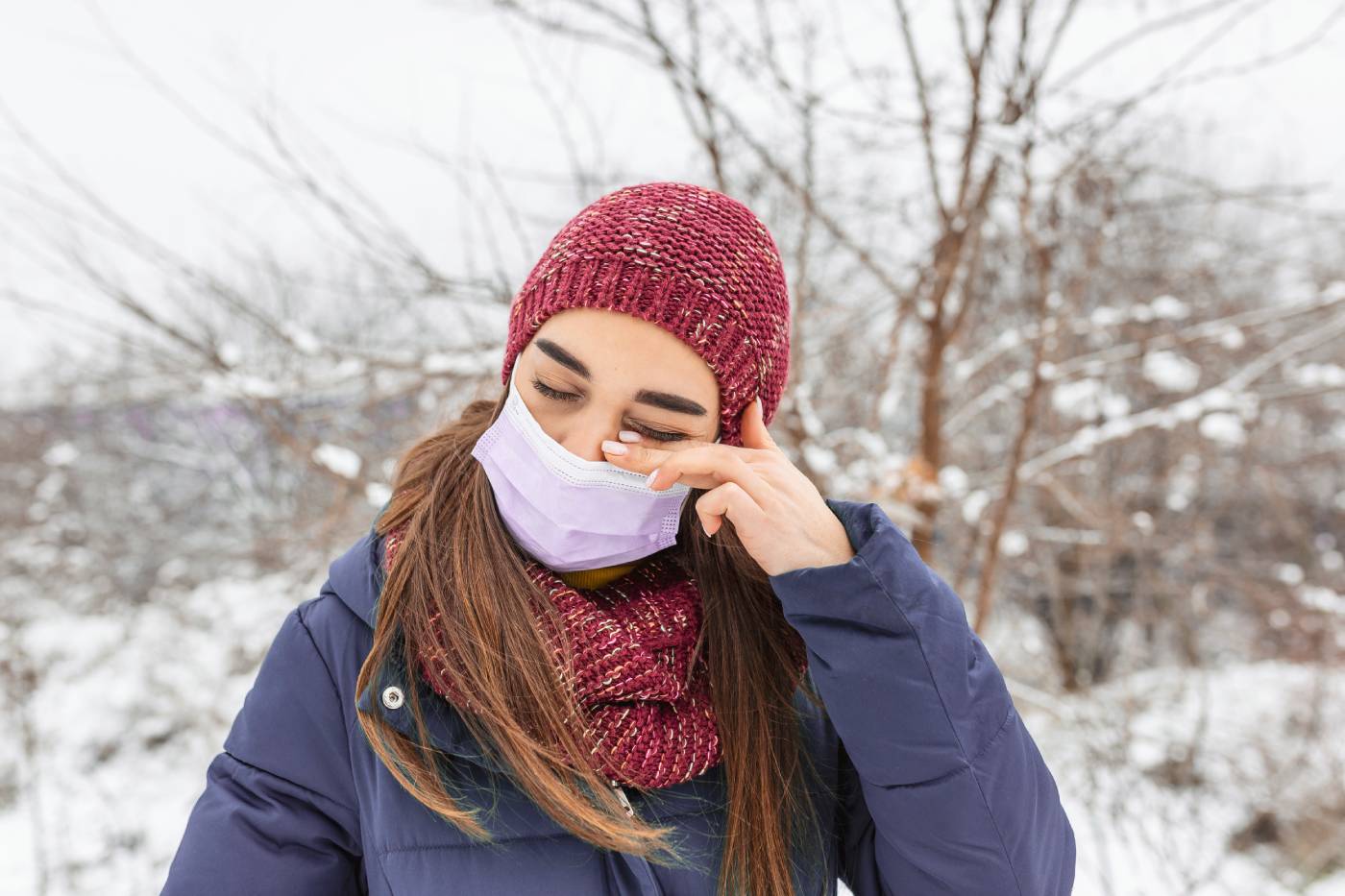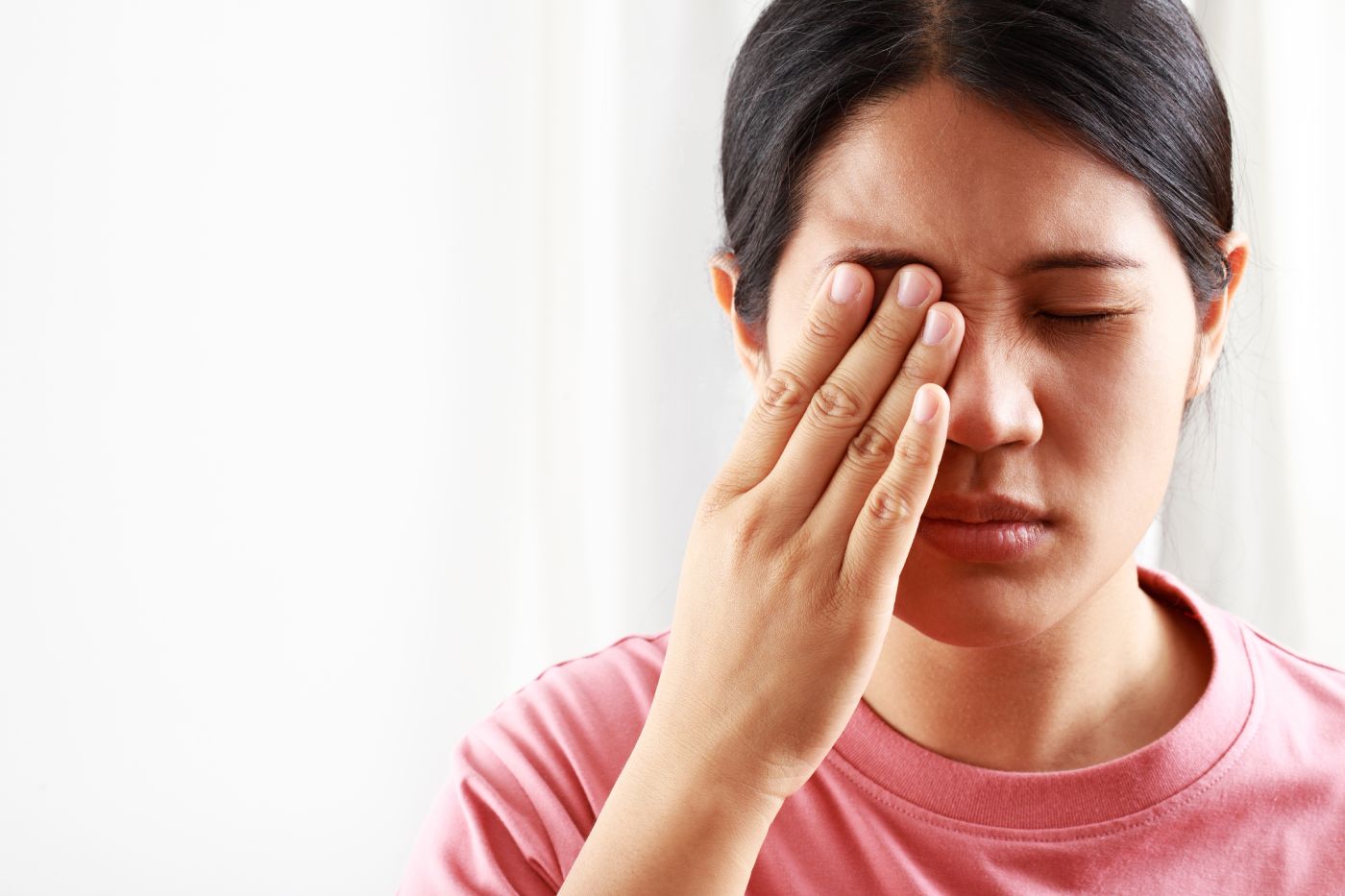Eye rubbing may seem harmless and instinctual when your eyes feel tired or irritated. However, frequent and forceful rubbing can lead to various potential problems that can jeopardize your eye health.
In this blog post, we will explore the dangers of eye rubbing and provide practical tips to help you break this habit and protect your precious eyes. Let’s begin!
5 Dangers of Eye Rubbing
Corneal Abrasions
The cornea, the eye’s clear front surface, is susceptible to scratches and abrasions when subjected to excessive rubbing. Rubbing your eyes with unwashed hands or with excessive force can cause painful corneal abrasions, leading to redness, tearing, and increased sensitivity to light. In severe cases, this can even result in infections and vision loss.
Eye Infections
Rubbing your eyes can introduce bacteria, viruses, and other irritants from your hands or surrounding environment into your eyes. This can increase the risk of developing eye infections such as conjunctivitis (pink eye) or styes, which are painful lumps that form along the eyelid. These infections can cause discomfort, redness, swelling, and even discharge.
Worsened Allergies
If you suffer from allergies, rubbing your eyes can exacerbate the symptoms. Rubbing your eyes releases more histamines, the chemicals that trigger itching and other allergic reactions, making your eyes even itchier. The continuous rubbing can also promote the spread of allergens, leading to prolonged or intensified allergic responses.
Increased Eye Pressure
Persistent and vigorous eye rubbing can increase intraocular pressure, which harms individuals with certain eye conditions. This can be particularly dangerous for individuals with glaucoma, a group of eye disorders characterized by increased pressure within the eye. Elevated eye pressure can damage the optic nerve and potentially result in vision loss.
Accelerated Aging of the Eye Area
The skin around the eyes is delicate and susceptible to damage. The mechanical pressure applied during eye rubbing can stretch skin, wrinkling, and sagging. Over time, this can contribute to premature aging and the development of fine lines and crow’s feet around the eyes.
How to Stop Eye Rubbing
- Identify Triggers
Recognize the situations or conditions that make you more prone to eye rubbing, such as allergies, dryness, or fatigue.
- Use Eye Drops
Lubricating eye drops can help relieve dryness and reduce the urge to rub your eyes.
- Seek Allergy Relief
Take proactive measures to manage your allergies through medications or avoidance of triggers.
- Practice Good Eye Hygiene
Wash your hands frequently to prevent the transfer of germs into your eyes.
- Find Alternative Strategies
If you feel the urge to rub your eyes, try gently applying a cold compress or massaging your temples instead.
- Consult an Eye Care Professional
If your eyes are persistently itchy or irritated, consult with an eye doctor who can address the underlying causes and provide appropriate treatment.
Conclusion
Eye rubbing may provide momentary relief, but its potential dangers to your eye health far outweigh the temporary comfort. The risks are significant, from corneal abrasions and infections to worsened allergies and increased eye pressure.
By understanding the dangers and implementing strategies to break the habit, you can ensure your eyes’ long-term health and well-being. Remember, it’s essential to consult an eye care professional for personalized advice and proper management of any underlying conditions.
Visit Pearland Vision For The Best Eye Care in Pearland, Texas
It is common for people to overlook their need for professional eye care or corrective eyewear until their vision hinders their daily routine. Therefore, if you are currently experiencing any sort of vision impairment, no matter how insignificant it may seem, we strongly recommend that you undergo a thorough checkup conducted by us. Ignoring minor vision problems can lead to significant complications and signal underlying health concerns.
Our team is dedicated to procuring the latest technology to detect potential eye-related diseases, thereby preventing vision issues and offering our patients an extensive evaluation of their eyes. Visit us for the most comprehensive eye care in Pearland, TX.
Please schedule an appointment today to see, look, and feel better!











